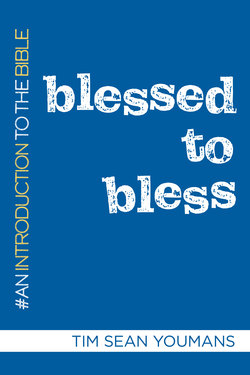Читать книгу Blessed to Bless - Tim Sean Youmans - Страница 30
На сайте Литреса книга снята с продажи.
Оглавление19
Joseph and Promises Fulfilled
Read Genesis chapters 37–50. This is a longer reading than we have been doing, thirteen pages.
You have reached the end of the book of Genesis. These are the stories of the patriarchs and matriarchs of the Hebrew tribe. God created human beings morally free and through their own choices they alienate themselves from each other and from God. God plans to create a “blessing culture” through which healing and ultimate blessing will come to all the families of the earth.
The final story, fourteen chapters at the end of Genesis, demonstrates a common pattern that will be repeated in future stories: God blesses people, then these people break the relationship with God, and God repairs what was broken.
Joseph is the favorite child of Israel (Jacob) and Rachel, the wife that he is deeply in love with (the others are tribal obligations). This child is intelligent and gifted, and Israel (Jacob) and Rachel show him favoritism. The other half-brothers are resentful and sell him into slavery, telling their father the boy was killed by wild animals.
In a series of events, the talented Joseph rises up from slavery and imprisonment to become governor of Egypt, second only to Pharaoh. He rises to power by leading Egypt to store up grain for a coming famine. His brothers travel to Egypt to buy food during this famine and are reunited with the half-brother they betrayed. It is a story of forgiveness. One of the final statements of Joseph captures the larger theme of all these stories in Genesis:
You intended it for harm, but God intended it for good.
A note about tribal identity: Joseph unintentionally fulfills the promise of his great-grandfather Abraham: “Through you all the families of the earth will be blessed.” Joseph blesses the people of Egypt and saves them from famine. This is the first time you see fruit of the Vision Quest.
Joseph marries Aseneth, the daughter of Potipherah, an Egyptian priest of On. Aseneth bore Joseph two sons, Manasseh and Ephraim. This is important, as both these grandsons of Israel will eventually become tribal heads for the Hebrews—cross-cultural leaders.
There is a repeat of the whole switch-a-roo blessing. It is done by, of all people, Israel (Jacob). When he adopts Joseph’s Egyptian sons into the tribe and gives them a tribal portion, he crosses his hands for the younger to usurp the older. Joseph objects and tries to switch his father’s hands back. But Israel insists. A precedent has been set; the traditional expected means of blessing will often be usurped for a greater good.
The story of Judah and Tamar (chapter 38) fits into this genre, that of an unlikely person becoming a main player in a story. Judah, a son of Jacob and Leah, must help his widowed daughter-in-law, Tamar, after her husband, Er, dies. Tribal law requires that the next oldest brother marry the widow and attempt to give her a child so she can have an heir and someone who will care for her in old age. Er’s brother Onan is unwilling to fulfill this obligation (the term, Onanism, comes from this story of him spilling his seed, or sperm, on the ground). Tamar takes matters into her own hands by deceiving and seducing her father-in-law Judah in order to get the pregnancy she needs to survive. It is one hot mess. The twin children that are born of this union between Judah and Tamar are linked to the future Jesus. Perez is in the line of Judah that bears David, and Jesus was born in the line of David.
God takes the messiness of our convoluted choices and uses them for larger redemptive purposes.
You intended it for harm, but God intended it for good.
Questions for Reflection or Discussion
1. Can you think of an event in your life that when it was happening to you it was terrible, but later you saw the good that came from it, either for you or someone else?
2. Is there anything you are going through now that in the long run might be good for you and someone else?
